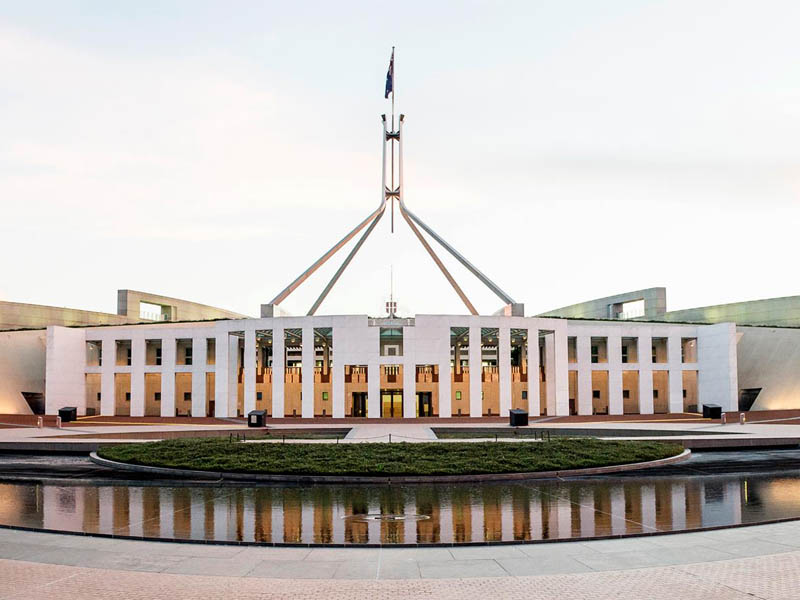The whole of government sourcing arrangement signed between the Digital Transformation Agency and the global cloud giant Amazon Web Services raises serious questions about sovereignty in relation to the data held by the company on behalf of government.
It is also opaque on tax in relation to the application of the GST and where revenues are booked for the various different services rendered under the contract.
The purchasing arrangement has been signed with AWS’ Seattle-based corporate entity rather than the substantial Australian-registered AWS business, muddying the waters of where the ultimate legal jurisdiction over the government data held by the company resides, regardless of whether it in Australia or an AWS data centre elsewhere in the world.

While it is certainly not unusual for the government to sign commercial arrangements with foreign suppliers, cloud environments have added a layer of complexity. Any dispute over the management or control of government data would lead to foundational questions about sovereignty in the event of any jurisdictional murkiness.
While jurisdictional issues can be spelt out in the contract, it is not clear how these sovereignty issues were dealt with, and the Digital Transformation Agency will not say.
When asked why the government signed its AWS volume sourcing agreement with the offshore entity rather than the locally registered entity, the DTA declined to say. Similarly, it would not say what the advantage to the Australian government is of contracting with the Seattle based company, rather than the Australian company.
If there is an advantage to Australians and to the Australian Government, we are not being told.
The AWS contract – according to the company – gives federal, state and territory departments and agencies, as well as public universities and government-controlled business entities with a consistent approach to access and use all the AWS services in any of AWS’s 66 Availability Zones (AZs) spanning 21 Regions around the world.
Sovereignty issues in relation to government data would of course be front-of-mind for any agency accessing services under the contract.
It is worth noting also, in relation the questions of sovereignty, that the government cloud services offered to the Australian Government to companies like AWS or Microsoft are very different from government-tailored cloud services sold to the US Government.
And it is impossible to believe that the US government would sign a whole of government contract with a foreign entity to host government data to protected level in the public cloud.
There are also real questions about which services provided under the AWS whole of government sourcing arrangement would attract the standard Goods and Services Tax (GST).
Such arrangements open a Pandora’s Box filled with cans of worms in relation to tax and jurisdictions. AWS will not discuss tax issues, except to say that “AWS pays all applicable taxes in Australia.” InnovationAus.com is not suggesting otherwise. But it is certainly unusual that the DTA obfuscate on the issue.
Tax is so obviously a foundation of sovereignty that it barely needs mentioning. If you can’t control the collection of tax from citizens and businesses, you no longer have a country.
Tax is a sore point among Australian companies that compete that compete with multinationals. This is especially the case where opaque whole of government sourcing contracts signed with these companies, like the AWS contract.
Such an arrangement tilts the playing field in favour of AWS over local cloud providers. By collecting GST on behalf of government for services rendered, these Australian companies immediately find themselves at a 10 per cent price disadvantage in any competitive bidding scenario on some services.
Local companies don’t get the same kind of transfer pricing opportunities that are well understood by multinational competitors.
The original contract notification of the AWS sourcing contract on the tenders.gov.au website had listed the supplier as ABN exempt, signalling to the layman at least that GST was not applicable. This exemption was changed after InnovationAus.com inquired about GST, explained away as a “clerical error.”
The amended contract notice includes an ABN for Amazon Web Services Inc, based in the United States and not incorporated in Australia.
The DTA confirmed that it does not consider domiciles or GST implications when assessing a product or service. In entering the whole-of-government arrangement with AWS, the DTA says it cannot say whether GST is applied to services rendered under the contract, and that it was up to individual departments and agencies to determine this.
A simple query about GST wrought the following Frankenstinian response from the DTA”
“The DTA conducts its business, as all Commonwealth agencies do, in line with the Public Governance, Performance and Accountability Act 2013 and the Commonwealth Procurement Rules. Each procurement takes into account relevant legislation and procurement connected policies. DTA considered the commercial, legal and technical aspects of the arrangement, as well as ensuring compliance with Australian legislation as applicable. If the services attract a GST charge then AWS, under the contract provisions, are bound by Australian law to pay GST. This includes adhering to taxation legislation, specifically as it applies to the provision of digital services.?
There you go. Clear as mud.
This story is about the preferential treatment given by the Australian government to AWS via its whole of government procurement contract. But the same can be applied to others. The DTA announced this week a three extension to the Microsoft volume sourcing arrangements. Others are in place with IBM, SAP and Concur.
These are co-marketed by government, to the detriment of the local industry.
Do you know more? Contact James Riley via Email.

